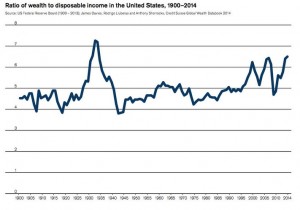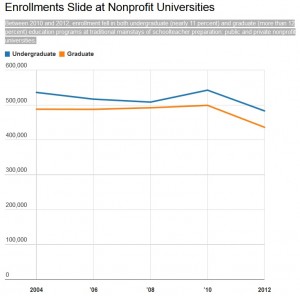-
Jetmir Troshani's Blog @CUNYCommons #LAGCC #CUNY
 Control your social media class interactions with these SM Management applications.
Control your social media class interactions with these SM Management applications.
HootSuite
This social media management app allows users to monitor and post to several popular networks such as facebook, […] -
-
-
-
-
Tony's Thoughts
Dear Commons Community,
The ratio of wealth to household income in the U.S., a measure of inequality, is the highest it has been since just before the Great Depression, Credit Suisse noted in a 64-page […]
-
-
-
Tony's Thoughts
Dear Commons Community,
German universities are now free to all international students. The last German state to charge tuition at its universities struck down the fees last week. According to one CBS affiliate:
“In explaining why Germany made this move, Dorothee Stapelfeldt, a Hamburg senator, called tuition fees “unjust” and added that “they discourage young people who do not have a traditional academic family background from taking up study. It is a core task of politics to ensure that young women and men can study with a high quality standard free of charge in Germany.”
Actually, German universities were free up until 2006 when they started charging tuition. That triggered such a crush of criticism that German states began phasing out this policy. Lower Saxony was the last holdout.
It’s too bad that politicians in the U.S. don’t feel that a college education is worth supporting appropriately. State aid to the nation’s public universities took a nosedive during the 2008 recession and education funding remains well below those levels. The average state is spending 23 percent less per student than before the recession, according to a report by the Center on Budget and Policy Priorities.”
I would also add that unlike in Germany, most American public colleges and universities have had to increase student tuition to make up for decreases in state funding,
Tony
-
Digital Praxis Seminar Fall 2014 - Spring 2015
Matthew K. Gold (he/him) commented on the post, Alt-Ac BlogMany thanks for this, Elissa. And this does absolutely have a great deal to do with our course — we are doing some reading on Alt-Ac subjects on Nov 3 – […]
-
Digital Humanities Initiative
Matthew K. Gold started the forum topic Fwd: [DHSI] CFP: Keystone Digital Humanities Conference (Philadelphia PA, July 22-24, 2015)———- Forwarded message ———-
The Keystone Digital Humanities conference will be held in the Kislak
Center for Special Collections, Rare Books and Manuscripts at the
University of Pennsylvania […] -
Tony's Thoughts
Dear Commons Community,
In a dramatic shift in tone, a Vatican document which some have referred to as an “earthquake” said that homosexuals had “gifts and qualities to offer” and asked if Catholicism could accept gays and recognize positive aspects of same-sex couples. The document, prepared after a week of discussions at an assembly of 200 bishops on the family, said the Church should challenge itself to find “a fraternal space” for homosexuals without compromising Catholic doctrine on family and matrimony. As reported by Reuters:
“While the text did not signal any change in the Church’s condemnation of homosexual acts or gay marriage, it used less judgmental and more compassionate language than that seen in Vatican statements prior to the 2013 election of Pope Francis.
“Homosexuals have gifts and qualities to offer the Christian community: are we capable of welcoming these people, guaranteeing to them a further space in our communities? Often they wish to encounter a Church that offers them a welcoming home,” said the document, known by its Latin name “relatio”.
“Are our communities capable of proving that, accepting and valuing their sexual orientation, without compromising Catholic doctrine on the family and matrimony?” it asked.
John Thavis, Vatican expert and author of the bestselling 2013 book “The Vatican Diaries”, called the report “an earthquake” in the Church’s attitude towards gays.
“The document clearly reflects Pope Francis’ desire to adopt a more merciful pastoral approach on marriage and family issues,” he said.
London-based QUEST, one of the oldest Catholic gay rights groups, said in a statement that parts of the synod document “represent a breakthrough in that they acknowledge that such unions have an intrinsic goodness and constitute a valuable contribution to wider society and the common good.”
The Vatican document will be the basis for discussion for the second and final week of the bishops’ assembly, known as a synod. It will also serve for further reflection among Catholics around the world ahead of another, definitive synod next year.”
For Catholics and Catholic watchers, this is an incredible development. It will be interesting to see what the synod says (if anything) about divorce and abortion.
Tony
-
Tony's Thoughts
Dear Commons Community,
Dr. Francis Collins, the head of the National Institutes of Health, said that a decade of stagnant spending has “slowed down” research on all items, including vaccinations for infectious diseases such as EBOLA. As a result, he said, the international community has been left playing catch-up on a potentially avoidable humanitarian catastrophe. Furthermore, as the federal government frantically works to combat the Ebola outbreak in West Africa, and as it responds to a second diagnosis of the disease in Dallas. Texas, Dr. Francis Collins, the head of NIH says a vaccine likely would have already been discovered were it not for budget cuts. As reported in The Huffington Post:
“NIH has been working on Ebola vaccines since 2001. It’s not like we suddenly woke up and thought, ‘Oh my gosh, we should have something ready here,'” Collins told The Huffington Post on Friday. “Frankly, if we had not gone through our 10-year slide in research support, we probably would have had a vaccine in time for this that would’ve gone through clinical trials and would have been ready.” It’s not just the production of a vaccine that has been hampered by money shortfalls. Collins also said that some therapeutics to fight Ebola “were on a slower track than would’ve been ideal, or that would have happened if we had been on a stable research support trajectory.”
“We would have been a year or two ahead of where we are, which would have made all the difference,” he said. Speaking from NIH’s headquarters in Bethesda, Maryland, the typically upbeat Collins was somber when discussing efforts to control the Ebola epidemic. His days are now spent almost exclusively on the disease. But even after months of painstaking work, a breakthrough doesn’t seem on the immediate horizon.
Money, or rather the lack of it, is a big part of the problem. NIH’s purchasing power is down 23 percent from what it was a decade ago, and its budget has remained almost static. In fiscal year 2004, the agency’s budget was $28.03 billion. In FY 2013, it was $29.31 billion — barely a change, even before adjusting for inflation. The situation is even more pronounced at the National Institute of Allergy and Infectious Diseases, a subdivision of NIH, where the budget has fallen from $4.30 billion in FY 2004 to $4.25 billion in FY 2013.”
Dr. Collins’ comments are indicative of the sad state of the federal government’s inability to work out budget comprises that are for the good of the country and its people and not for the good of a political party.
Tony
-
Tony's Thoughts
Click on the image to enlarge.
Dear Commons Community,
Between 2010 and 2012, enrollment fell in both undergraduate (nearly 11 percent) and graduate (more than 12 percent) teacher education programs in public and private nonprofit universities according to the National Center for Education Statistics. As reported in The Chronicle of Higher Education (subscription required):
“The numbers don’t match overall enrollment trends. Undergraduate fall enrollment at four-year public and private nonprofit universities increased by more than 3 percent from 2010 to 2012. And according to survey results released by the Council of Graduate Schools in September, graduate enrollment at participating public and private nonprofit universities increased by an average of 0.7 percent annually from 2008 to 2013.
Among survey respondents, education had the greatest percentage decrease of all graduate programs from 2012 to 2013 (down 4.5 percent) and the greatest average annual percentage decline from 2008 to 2013 (down 3.4 percent)…
Data show that the paths students take to prepare for the teaching profession are changing. For-profit institutions have gobbled up an increasingly large share of students, as have online degree programs.
Enrollment in education programs at private, for-profit institutions has greatly increased in the past decade. From 2010 to 2012, enrollment in private, for-profit undergraduate education programs rose nearly 4 percent. Enrollment in for-profit graduate education programs decreased more than 21 percent but was still more than 50 percent higher than in 2004…
The recession hit [also] many school districts hard, and experts who spoke to The Chronicle believe layoffs and decreased hiring may have discouraged students from pursuing teaching careers.
“In the last few years, school districts have been cutting back on the number of teachers. There were layoffs in a number of areas, and hiring diminished, and the job market became less attractive,” said Arthur Levine, president of the Woodrow Wilson National Fellowship Foundation and a former president of Columbia University’s Teachers College. “One of the things we’ve seen is that career changers who were interested in switching to teaching are less likely to do it now. The field seems too uncertain, and holding on to their current jobs seems appealing…
Mark LaCelle-Peterson, vice president for policy and programs at the American Association of Colleges for Teacher Education, believes the numbers will rebound when the economy picks up.
“Enrollment in teacher-education programs has always been cyclical and somewhat responsive to the economy,” he said. “In the long term, it will be responsive to the job market. Right now we’re still projecting a need for quite a number of new teachers.”
The issues raised by these data should be of great interest and maybe concern to faculty and administrators in teacher education programs. I agree with Mark Lacelle-Peterson that enrollment in these programs is cyclical. However, careful planning including the development of online programs especially at the graduate level should be considered.
Tony
-
Tony's Thoughts
Dear Commons Community,
In a major move to support research on the use of big data in medicine, the National Institutes of Health announced on Thursday awards totaling $32-million. More than two dozen […]
- Load More




